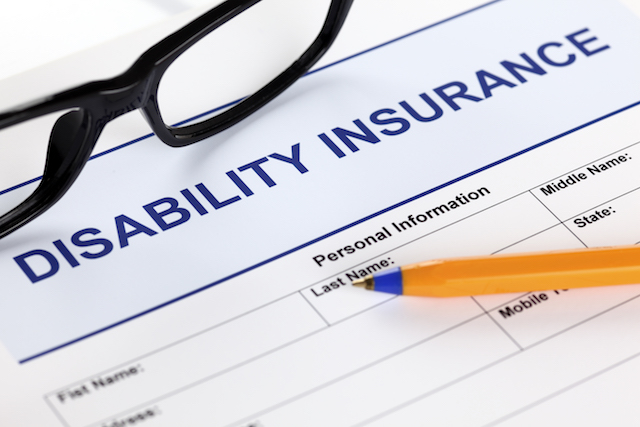Can I File Bankruptcy in Pennsylvania Because of COVID-19?
While the country is at a standstill, any financial strain you were experiencing prior to the COVID-19 outbreak is likely to increase. It is possible that you were contemplating or were in the midst of filing for personal bankruptcy when the crisis began. The United States Bankruptcy Court of the Eastern District of Pennsylvania remains open and is accepting bankruptcy petitions at this time.
Often, bankruptcy is the best option when you are overwhelmed by debt or have fallen behind on mortgage or car payments. The experienced bankruptcy attorneys at Young, Marr, Mallis & Associates have been assisting Pennsylvania residents suffering from economic hardships for over twenty years. Our compassionate and knowledgeable lawyers have guided individuals through difficult circumstances and are prepared to help you navigate this challenging time. Contact our office at (215) 701-6519 to arrange for a free, confidential legal consultation.
Orders of the Eastern District of Pennsylvania Bankruptcy Court During COVID-19
In response to the national pandemic emergency, the Eastern District of Pennsylvania Bankruptcy Court has issued a number of standing orders to adapt local bankruptcy rules to the crisis.
To limit human contact, securing original signatures on documents under Local Rule 5005-7(b) has been suspended. To comply with this order, our attorney must:
- Verify that the signer has received all of the documents or accurately inform the signer of the purpose and content of the documents.
- Obtain a digital signature or written permission, including through e-mail, expressly allowing our attorney to file the document.
- Obtain a facsimile or copy of the entire signed document.
The federal courthouse will remain open to hold telephonic hearings, but access to the clerk’s office will be limited. Paper filings and payments in person will not be accepted until further notice. Additionally, all in-person 341 meetings scheduled through April 10, 2020, will be continued to a date to be determined. Furthermore, certain deadlines have been extended to May 20, 2020. It is important to talk with our Pennsylvania bankruptcy attorney about the specifics of your case and how the deadline extension affects your case. This remains a fluid situation, so these orders are subject to change.
Our attorneys and clients will be able to call the court and appear telephonically at any necessary hearings. The court will be granting continuances liberally if the matter in dispute has been adversely affected by the COVID-19 outbreak.
Pennsylvania Chapter 7 Bankruptcies and COVID-19
The most common type of bankruptcy filed in Pennsylvania is Chapter 7. Designed for people with limited income and mostly unsecured debt, Chapter 7 provides a cost-effective and relatively quick method to eliminate a substantial amount of debt. If you were planning to file for Chapter 7 or were already in contact with our Pennsylvania bankruptcy attorney, the spread of COVID-19 should not deter you from following through.
While a Chapter 7 bankruptcy is often referred to as a “liquidation,” it is rare that an individual is required to sell any of their property after filing. Typically, all of the property a person owns is protected through provisions in the Bankruptcy Code. At Young, Marr, Mallis & Associates, our attorneys will thoroughly review all of your assets to ensure that the available exemptions protect them.
If you are struggling to pay monthly credit card bills, overdue medical expenses, or unsecured personal loans during this crisis, filing Chapter 7 allows you to stop those payments without fear of irritating phone calls, threatening letters, or collection lawsuits. Despite COVID-19, the protections provided by Chapter 7 are in full effect.
One requirement in every Chapter 7 bankruptcy is to appear at a 341 meeting. Due to the threat of COVID-19, all 341 meetings scheduled through April 10, 2020, have been postponed until a date to be determined. Any 341 meeting must be scheduled 20 to 40 days after filing for bankruptcy, so it is possible yours could be affected by this crisis. To comply with the Bankruptcy Code, your 341 meeting would be scheduled as usual and then continued.
In addition to personally appearing at the 341 meeting, a debtor must provide several documents to the trustee seven days before the first scheduled meeting. Even though your meeting might be subject to a continuance, those documents still must be provided in a timely manner.
Chapter 13 Bankruptcy in Pennsylvania During the COVID-19 Crisis
Many people in Pennsylvania file for Chapter 13 to stop a mortgage foreclosure or because their income is too high to qualify for Chapter 7. As COVID-19 affects people’s ability to work and earn an income, it also affects a debtor’s ability to pay their monthly trustee payment as required in Chapter 13.
If you are already in the middle of a Chapter 13 bankruptcy during this pandemic, you are still required to make your monthly trustee payments. The court and its trustees understand that this might be difficult under the circumstances and are prepared to grant liberal continuances for hearings on motions to dismiss cases for failure to make timely payments. It is important to understand that this relates to payment issues that are a direct result of COVID-19. If you were already months behind before the appearance of the virus, then it is unlikely the court or trustee will be as sympathetic.
Our experienced Pennsylvania bankruptcy attorneys could also recommend other options to help manage your monthly payments for the next few months. Through a motion to modify your plan, for instance, we could reduce your plan payments for a number of months. This does not affect the total amount you will be required to pay, however. This means that if your payment is lowered for six months, it will increase to a higher amount after those six months than you were paying previously to make up the difference.
If you were in the process of filing for Chapter 13, you should discuss your income situation with our attorney. Your first trustee payment will be due 30 days from the filing date of your bankruptcy. COVID-19 does not change that date, so you must be prepared to make that payment. If your income has remained stable during this time, then proceeding with the bankruptcy should not be an issue. If, however, your income has been substantially reduced and you must file for Chapter 13 immediately, there are options available to you.
The most likely course of action is filing a step-plan. Under the terms of a bankruptcy step-plan, the monthly trustee payment begins at a reduced amount with a planned increase after a few months when a change of income is expected.
If you can wait to file, a reduction in income might prove beneficial. Whether you are required to pay unsecured debt in Chapter 13 is partially determined by your last six months of income. If a reduction of income decreases the monthly amount you would have to pay to your creditors, waiting might be in your best interest. Our Pennsylvania bankruptcy attorneys can review your income situation with you to determine the best course of action.
Call Our Pennsylvania Bankruptcy Attorney to Speak About Financial Effects of the COVID-19 Crisis
Filing for bankruptcy is often an unfortunate necessity. With the current COVID-19 crisis affecting the entire country, it may not seem like an opportune time. However, in the majority of cases, while it may change some logistical aspects of a bankruptcy case, filing for bankruptcy in Pennsylvania remains a valuable tool for eliminating and managing debt. Call the Pennsylvania bankruptcy attorneys at Young, Marr, Mallis & Associates today at (215) 701-6519 to arrange for a free, private legal consultation.





























